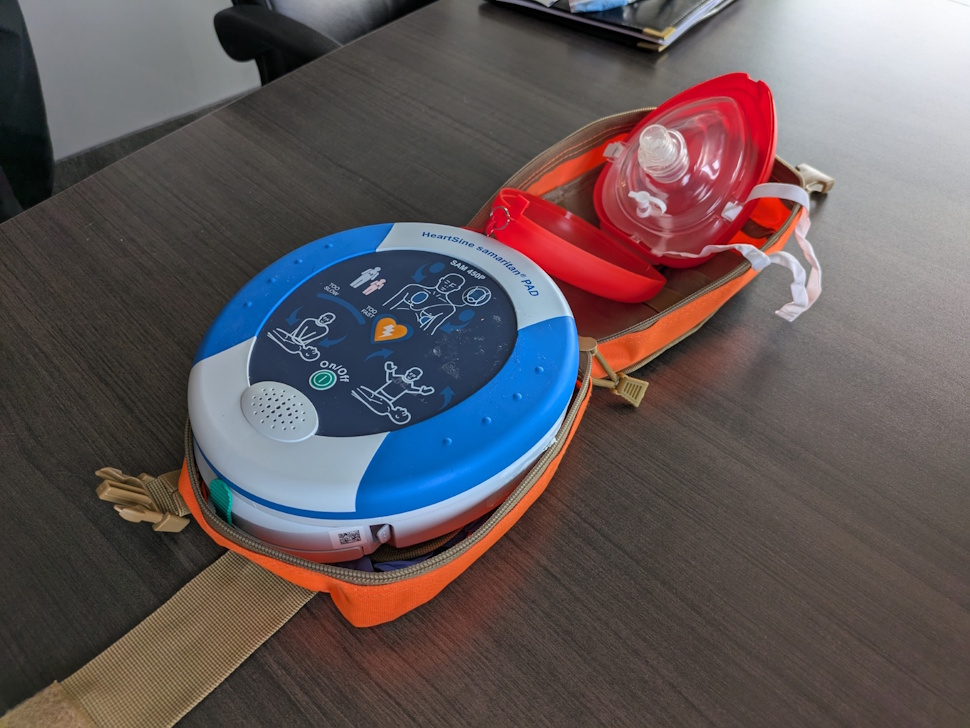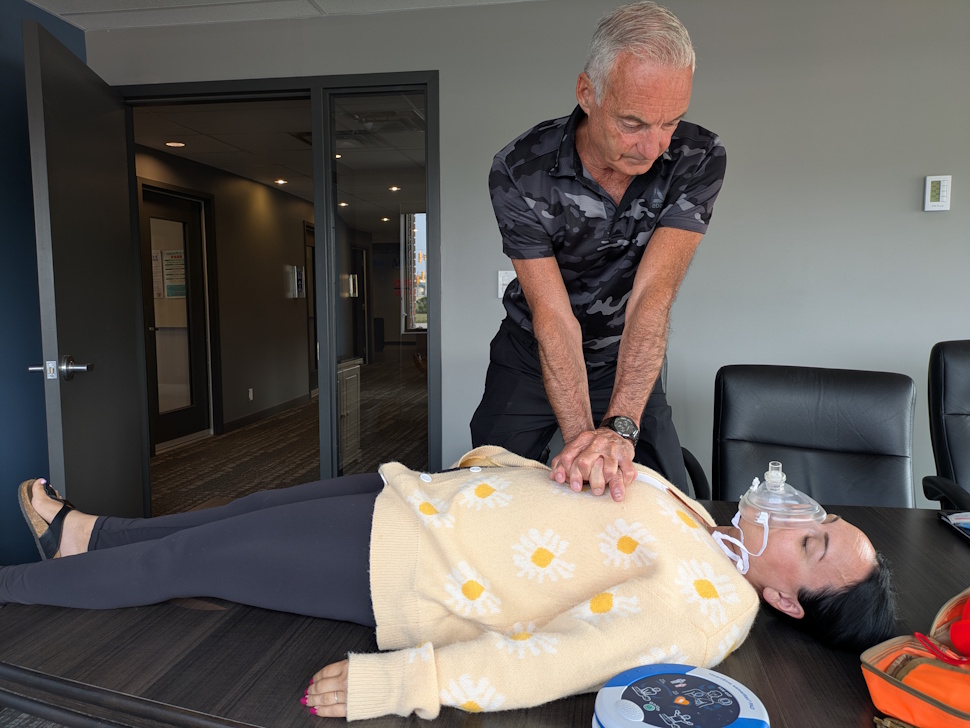Nearly three weeks ago, a carefree summer day at Delta Beach quickly turned into a life-or-death situation, but thanks to fast-acting bystanders who knew Cardiopulmonary Resuscitation (CPR), a young boy's life was saved. For long-time emergency responder and CPR instructor Dennis Morgan, the incident is a textbook example of why life-saving skills should be taught to everyone.
“Knowing CPR can make the difference between life and death,” says Morgan, a certified Heart & Stroke instructor with more than 20 years of teaching experience.
A skill for everyone
Morgan has spent most of his life responding to emergencies, from towing vehicles for the RCMP to conducting underwater recoveries to working as an Emergency Medical Responder in remote northern communities. Now retired, he dedicates his time to teaching CPR and first aid courses through the Heart and Stroke Foundation.
"Too often, we arrive on scene and people are standing around, not doing anything. I get that people panic, but doing something is always better than nothing," he explains.
Many people believe CPR is only for professionals, but that's a dangerous misconception. Around 70 per cent of cardiac arrests happen at home, often with a family member as the only person around to help.
“Everybody either has kids or aging parents. In case of a cardiac arrest or a child choking, everyone should know what to do,” he says.
Besides the lack of knowledge, Morgan says many are afraid to jump in for fear of legal consequences.
“People worry about being sued, but the Good Samaritan Act in Canada protects anyone who tries to help in an emergency. Nobody has ever been successfully sued for trying to help," he adds.
What to do
The standard method of CPR involves 30 chest compressions followed by 2 rescue breaths, a cycle repeated until help arrives or the person recovers.
“30:2 is the optimal ratio, but if you forget and do 25:3 or 15:2, at least you're doing something. That could still save a life,” he notes.
Morgan stresses that anyone can learn these life-saving techniques in just a few hours. His courses also include training on choking response, basic first aid, and how to use an Automated External Defibrillator (AED), which can restart a heart using a controlled shock.
“People get scared around AEDs. They think they might shock someone by mistake or even shock themselves, but they are modern and smart. They won’t deliver a shock unless it’s necessary," he continues.

In the heat of the moment, when anxiety is high, AEDs can also act as a guide.
“All the machines have the same operation,” he says. “They’ve got a little green button you push, and they walk you through it step by step. In a panic situation, your brain gets scrambled. Just take a deep breath and listen to the machine.”
Bringing CPR into the classroom
Morgan believes that CPR should be part of Manitoba’s basic education curriculum.
“This should be taught in schools. When people graduate, they should leave school with basic CPR skills. That way, wherever they are, they're ready."
He also encourages new parents to take infant choking response training, especially in rural areas where help can be far away.
“In some parts of Manitoba, EMS could be 15, 20, or even 60 minutes away. You may be the only person there who can make a difference," he stresses.
Despite the serious subject matter, Morgan’s courses are anything but intimidating.
“People come in nervous, almost in a panic, but five minutes in, they’re laughing and learning. I’ve even had eight-year-old kids do amazing CPR," he adds.
A community effort
While Morgan has officially retired from emergency services, he says he’s not stopping anytime soon, hosting classes for schools, youth groups, new parents, or anyone who wants to learn.
"We want to get this information out there. Whether it's in the workplace or children's groups, we're glad to come and teach this to everyone because it doesn’t take long for something to go wrong, but with the right training, you can give someone a second chance.”
For Morgan, every life saved is a reminder of why the work matters.
"I could be the next person on the ground, and if it ever is my turn, I hope the person who sees me go down knows CPR and can help save my life."
For more information or to request a class, contact Dennis Morgan at 204-720-9029 or by email at underwaterrec@hotmail.com.
Sign up to get the latest local news headlines delivered directly to your inbox every afternoon.
Send your news tips, story ideas, pictures, and videos to news@portageonline.com.
PortageOnline encourages you to get your news directly from your trusted source by bookmarking this page and downloading the PortageOnline app.
